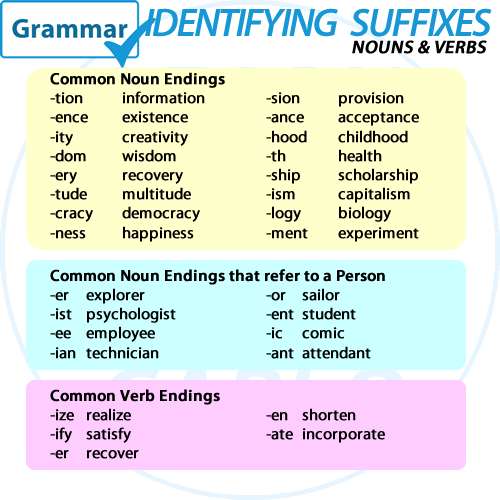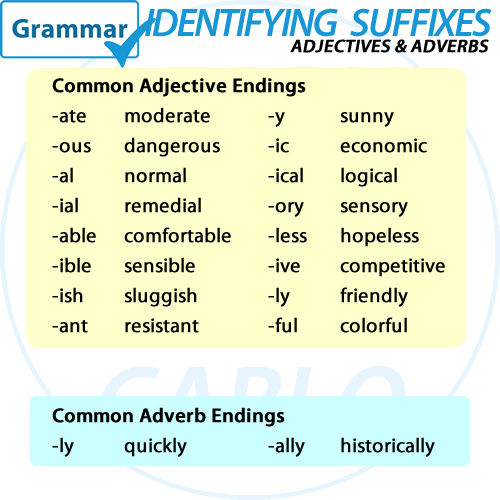Have you ever marveled at how the addition of a few letters at the end of a word can completely alter its meaning? Enter the world of suffixes – those small yet powerful linguistic components that play a crucial role in shaping our language.
What are Suffixes?
At their core, suffixes are linguistic elements appended to the end of a word to modify its meaning or function. They serve as the finishing touches, adding layers of nuance and specificity to our vocabulary. Derived from a multitude of languages, including Latin, Greek, and Old English, suffixes enrich our language with their versatility and depth.
Common Suffixes and Examples
- -tion/-sion
- Meaning: State or quality of.
- Examples: Education, discussion, expansion.
- -able/-ible
- Meaning: Capable of being.
- Examples: Comfortable, visible, incredible.
- -er/-or
- Meaning: One who performs an action.
- Examples: Teacher, actor, writer.
- -ly
- Meaning: In a certain manner.
- Examples: Quickly, happily, sadly.
- -ment
- Meaning: Action or process.
- Examples: Movement, development, excitement.
- -ful
- Meaning: Full of, characterized by.
- Examples: Beautiful, careful, thankful.
- -less
- Meaning: Without.
- Examples: Fearless, endless, homeless.
- -ness
- Meaning: State of being.
- Examples: Happiness, kindness, darkness.
- -ity/-ty
- Meaning: Quality or condition of.
- Examples: Reality, equality, beauty.
- -ize/-ise
- Meaning: To make or become.
- Examples: Organize, realize, criticize.


Usage Tips
Understanding the proper usage of suffixes is essential for effective communication. Here are some tips to help you master them:
- Pay attention to the part of speech: Suffixes can change the part of speech of a word (e.g., adding “-ly” to an adjective forms an adverb).
- Consult dictionaries: When unsure about a suffix, consult reputable dictionaries to ensure accurate usage.
Benefits of Understanding Suffixes
Embracing suffixes isn’t just about expanding your vocabulary; it’s about unlocking a world of linguistic possibilities. Here’s why it matters:
- Enhanced vocabulary comprehension: Knowing suffixes allows you to decipher the meanings of unfamiliar words by recognizing common patterns.
- Formation of word families: Understanding suffixes helps you trace the etymology of words and establish connections within word families, fostering a deeper appreciation for language dynamics.
